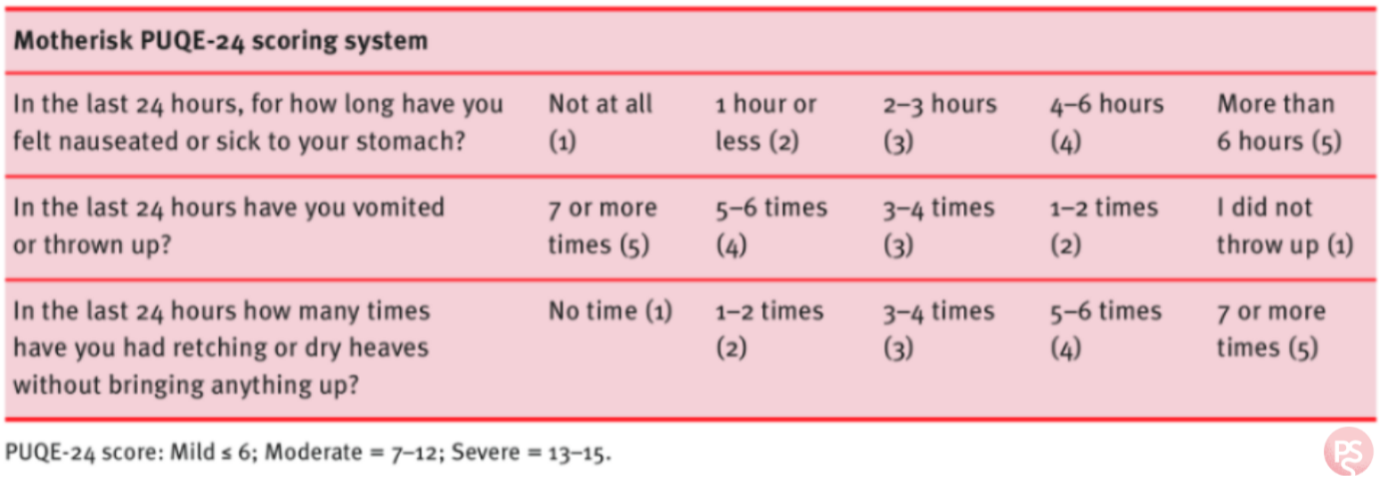Pregnancy Sickness ~ is it normal?
Advice from Pregnancy Sickness Support - a charity supporting women with morning sickness / pregnancy sickness and Hyperemesis Gravidarum.
Pregnancy sickness, commonly known as morning sickness, affects around 80% of pregnancies. You can expect to experience symptoms in the first trimester starting around 6 weeks and ending at around 12/13 weeks, although it can start sooner, go on longer and some people experience no symptoms at all. You may feel nauseous (some compare the feelings to sea/car-sickness) and vomit occasionally and possibly feel quite tired. You should still be able to eat and drink normally and most people will still be able to go to work and carry out day to day activities. With normal pregnancy sickness there are some lifestyle changes that you can do which may help:
Get lots of rest – tiredness can make nausea worse
Eat little and often to avoid an empty stomach – bland ‘beige’ carb heavy foods can help with nausea and ensure you get some protein too
Acupressure – Wrist bands which put pressure on the P6 point on your wrist may help reduce nausea
Drink plenty of fluids – cold/hot drinks may be easier to manage than room temperature
Nausea and vomiting in pregnancy is described as a ‘spectrum’ condition. At one end of the spectrum you have pregnancies with no nausea or vomiting at all and at the other end you have the serious, potentially life-threatening complication of pregnancy known as hyperemesis gravidarum or HG for short. Most people sit between these points and many people with even moderate symptoms need a little help to get them through their pregnancy.
So how do you determine if what you are experiencing is worse than ‘normal’ pregnancy sickness, when would you ask for help and where would you go for this?
PUQE Score, reproduced with permission. ref: Koren G, Boskovic R, Hard M, Maltepe C, Navioz Y, Einarson A. Motherisk-PUQE (pregnancy-unique quantification of emesis and nausea) scoring system for nausea and vomiting of pregnancy. American Journal of Obstetrics and Gynecology. 2002;186(5):S228-S31.
The Pregnancy-Unique Quantification of Emesis (or PUQE score for short) is an assessment tool which healthcare professionals would use to help them to determine the severity of your symptoms and where you may be sitting on the pregnancy sickness spectrum. Each question has a score between 1 – 5 depending on your answer, and the total number scored can be used to get a better understanding of where you may be on the Pregnancy sickness spectrum.
There are other things that you should take into consideration also:
Are your symptoms affecting your ability to eat and drink?
Have you lost weight since you became pregnant? If so how much?
Are your symptoms making it hard to function normally?
Are you having to take time off from work?
Are you struggling to do day to day normal activities or even just to get out of bed?
If you answer yes to one or more of these questions, then you may need to get some help. You can call your GP and explain your symptoms and what you have been experiencing (the PUQE score questions are really helpful for this – they should be using this to assess you). Your GP may also ask about how much you have been able to drink and keep down, and any signs of dehydration – severe vomiting can lead to dehydration and your GP may need to refer you to hospital to receive fluids through a drip.
For people with moderate to severe pregnancy sickness there are some medications which can be prescribed to help to manage the symptoms and help you to eat, drink and function again.
There are some specific guidelines which details information about how your symptoms should be managed and all of the medications which are used. You can ask your healthcare team to follow these guidelines.
rcog.org.uk/globalassets/documents/guidelines/green-top-guidelines/gtg69-hyperemesis.pdf
There are anti-sickness medications that can be prescribed which have been extensively researched and used for many years to reduce and manage symptoms. There isn’t any strong evidence that suggests these cause any harm to baby and with all medication use you have to consider the benefits of taking it and the risks of not taking it if you are not able to eat and drink.
Pregnancy Sickness Support is a specialist UK charity and their website is full of useful information and resources which may be really helpful. There is also an online forum where you can connect with other sufferers and survivors for support and also discuss coping strategies or any other questions and concerns that you might have.
www.pregnancysicknesssupport.org.uk
Don’t forget - you can always talk to us at ScanSanctuary. We’re here to listen and help.
Jen x

